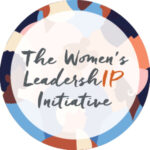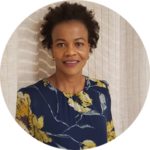Interviews
Uplifting Women Entrepreneurs Through Intellectual Property: An Interview with Namibia’s IP Office CEO
Published: July 6, 2022
 Launched in March 2020, The Women’s LeadershIP Initiative champions the development of strong leadership skills for all women in the intellectual property (IP) field to empower them to advance their careers to the next level. In support of this ongoing initiative, and in line with our strategic direction to foster diversity and inclusion and advance corporate social responsibility, we have created the “Women in LeadershIP” INTA Bulletin interview series to inspire change in the global IP community. This is the first interview in this series.
Launched in March 2020, The Women’s LeadershIP Initiative champions the development of strong leadership skills for all women in the intellectual property (IP) field to empower them to advance their careers to the next level. In support of this ongoing initiative, and in line with our strategic direction to foster diversity and inclusion and advance corporate social responsibility, we have created the “Women in LeadershIP” INTA Bulletin interview series to inspire change in the global IP community. This is the first interview in this series.

Vivienne Katjiuongua, Namibia’s IP Office CEO
Since gaining independence in 1990, Namibia had seen steady economic growth. However, socio-economic challenges remain. Vivienne Katjiuongua is the first woman to lead Namibia’s Business and Intellectual Property Authority (BIPA), bringing more than two decades of experience to her role as chief executive officer.
In an interview with the INTA Bulletin, Ms. Katjiuongua sheds light on the Office’s strategy and underlying challenges, the development of innovation in Namibia, and how intellectual property (IP) can help uplift entrepreneurs, create value, and fuel economic growth. She also shares some insight into what it means to be the first woman to head BIPA and how the Office is working to support Namibian women.
Could you briefly present your Office’s strategic plan?
Our Office registers both IPRs [intellectual property rights] and businesses or corporations. Trademarks, for example, are one of the biggest IPRs registered with us. It’s really the most understandable and easiest IPR for our business community to appreciate. Our key drive right now is to really go out there, share information, educate, and advocate on the value and the importance of IPRs generally, but specifically when it comes to trademarks.
So, we want to focus on those IPs that are easy to understand, especially to the grassroots people and the SMEs [small and medium-sized enterprises] so that everybody can, from a certain perspective, understand the value that IPRs can add to your business and contribute to the economy at large.
We have spoken to our Ministry of Education, for example, to see how we can introduce the subject of intellectual property into our school system. We’re also working with different institutions of higher learning where we try to team up, or at least work together, to get the message out there. We are using various platforms to educate and get people to really understand how to register [their IP], what the protection entails, and to show that it’s not as expensive or as complicated as it may seem, especially when it comes to trademarks.
We look at how women entrepreneurs can be assisted to benefit from IPRs, especially through the process of innovation, product development, and commercialization.
How is the Office contributing to the development of an innovation system in Namibia?
We have different institutions that, for example, have innovation hubs, and so on. Instead of creating our own, we would really capitalize on that and ensure that our staff members are available, and we provide information on how innovators can then register their IP rights or access existing data on IPRs. But in addition to that, we are currently also trying to build the IP ecosystem in the country.
In terms of the strategies, first, we are currently running a survey through a questionnaire that we’ve shared with the industry to try and understand their level of exposure to IP. We assess their awareness by posing questions such as: What do they know about it? Do they have any IPRs that they’ve registered? Do they undertake valuations of their IPRs? Then, based on the information that we collect through the survey responses, we place the respondents in different categories and ensure that we find strategies to engage them within their different levels of exposure. Some successful innovators are assigned a BIPA team member who can guide them through the process and procedure utilized to transform an innovation into a specific service or product that can benefit from registration.
We will soon launch a project, with the support of WIPO [World Intellectual Property Organization], which seeks to support Namibian women entrepreneurs in generating IP and leveraging its value for business competitiveness. The project will provide training and mentoring for women entrepreneurs to improve their understanding and use of IP. We look at how women entrepreneurs can be assisted to benefit from IPRs, especially through the process of innovation, product development, and commercialization, and ultimately getting their product to the market so that it has more value and has a trademark through which they can then advertise and/or sell it.
As an IP leader, how do you encourage Namibian women to be more involved in the IP community?
We have various engagements that we try where you really focus on women, and you invite them and you talk to them, or you connect them with other women who have really capitalized on IP. The challenge where I come from is that the subject of IP is made to sound so complicated. So, you try and use the simplest methods to explain. From my perspective, trademarks are a really easy way to explain the value [of IP] because everybody gets dressed! Everybody wants to wear a brand name or something like that. So, it’s easy and it touches them in a different way than trying to explain what a patent is and how you get there.
[T]rademarks are a really easy way to explain the value [of IP] because everybody gets dressed! Everybody wants to wear a brand name or something like that.
The programs that we have now are women-centered. We go out there and look for a group of women, especially those who’ve already started doing their work because they are more involved in hand work, photography, and similar crafts. You try to go to the grassroots because these are the people who would spread the message even faster and wider than we can. And then we get them together, we identify what is it that they need to get to the next level, and we look for funding. We educate them to capacitate them to understand their product and the value that IPR would add to that.
And then we encourage them to also use their voice and spread the news further. The message is really better told through a story than just having an abstract example that you set out there. We’re really working on using these few women to set an example and then let them become the trainers of others or advocate on the whole aspect of IP and what value it can add and why it’s important for business and for the economy at large.
You’re the first woman to serve as the head of the country’s IP Office. What challenges and opportunities have you observed from that vantage point?
Being a woman in leadership is probably a bit different because the country and the region where I come from is very male-dominated. What one has to do is to make sure that you are heard. Sometimes you have to raise your voice a bit louder than others, but your presence is there, and you really have to know what it is that you are doing, what you are saying, or what you want to achieve from the conversation or engagement. I think it’s harder for us, but it’s not impossible.
The nice thing for you as a woman [leader] is that you set an example for the young ones to come and to look up to, and really work toward also achieving the same and better. I think we have better opportunities because the way that the world is moving gives opportunity to all, especially to the previously disadvantaged, to women.
So, you just have to be a bit tough, but you don’t have to be like a man. But because we are women, we are also more compassionate. We look at things from a different perspective. I think the way we do business or the way we run firms adds value.
The nice thing for you as a woman [leader] is that you set an example for the young ones to look up to and really work toward also achieving the same and better.
INTA recently published reports looking at the future of the IP field. How do you personally envision the IP office of the future?
For me, the IP office of the future should be one with a specific strategy that you are focusing on for the period. It must be sustainable in that you collect your own fees and you’re able to run the office in a financially sustainable way, but you must also have the right expertise in the office to be able to provide the services that you offer. Planning should be long-term—looking at the future and seeing what needs to change. What are the new subject matters that you need to introduce? We need to capacitate the office to look at the current status, but also work toward the future, be agile, and make sure that we try and simplify things as much as possible—really be strategy-focused, aligning with the economic goals of your country and ensuring that the IP office is financially sustainable.
The IP office of the future would be one that is digitalized, because you want people to access your information. Your registration process should be speedy and turnaround times should be reflective of the interest of the applicants for these IPRs.
When our clients, especially SMEs, look at IP, it seems they view it as a complicated matter, and their understanding is misplaced and sometimes out of context. But, through advocacy and awareness-raising, we need to get the right message out there so that even schoolchildren from a young age are exposed to IP and learn about the subject matter. In that way, as we build our economy and our businesses, it all goes hand in hand.
Although every effort has been made to verify the accuracy of this article, readers are urged to check independently on matters of specific concern or interest.
© 2022 International Trademark Association